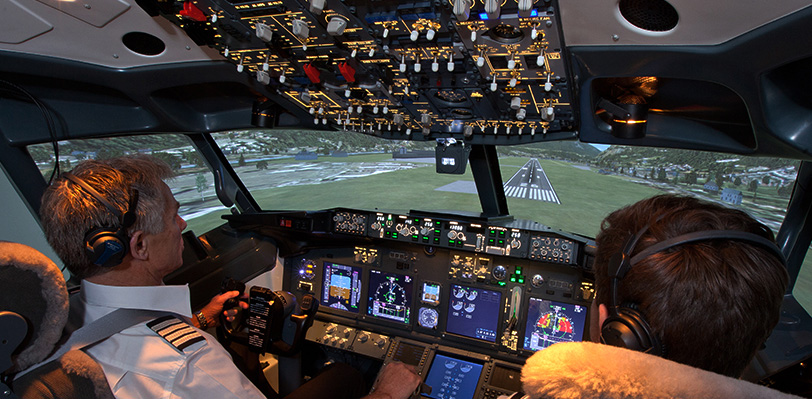Stay Up to Date
Submit your email address to receive the latest industry and Aerospace America news.
Southwest Airlines, the largest operator of Boeing 737 MAX aircraft in the U.S., does not plan to require simulator training for pilots on the troubled automation software that has been the focus of the investigations into the MAX crashes.
“The simulator training we don’t feel is necessary because our pilots are extensively trained in the simulator and for the kinds of scenarios the software is being modified for,” Southwest CEO Gary Kelly said Thursday during an earnings call with investors and reporters.
The statement puts Southwest at odds with pilot groups and family members of the MAX crash victims, who are pushing for pilots to spend time in simulators to learn how to counteract the Maneuvering Characteristics Augmentation System, or MCAS. Investigators outside the U.S. found in each of the MAX crashes that MCAS activated itself after getting faulty readings from angle-of-attack sensors that indicated the aircraft were in danger of stalling. MCAS pushed the nose of the aircraft down and the crews couldn’t regain control.
Southwest Chief Operating Officer Mike Van de Ven said during the call that although pilots need to be aware of how MCAS operates, Southwest pilots have “already been in situations” like the Lion Air and Ethiopian flights during the current simulator training.
As the MAX investigations continue, pressure is growing on the FAA to mandate simulator training for MCAS. Boeing plans to present the FAA with updated training recommendations for the MAX in September when it submits a software update for the MCAS. The FAA so far has only required additional computer-based training on MCAS.
While Southwest’s Kelly called that recommendation “sufficient,” other airlines are implementing their own plans. United Airlines, which has 17 MAX aircraft in its fleet, has started “enhanced simulator training, not just for the MAX but for all aircraft,” airline President J. Scott Kirby said in a July 17 conference call. United has not said exactly what the enhancements entail.
“We expect we already are beginning to go beyond what we would expect from that regulatory framework” the FAA will require, he said.
American Airlines, which also held an earnings call today, said in an emailed statement that going forward its pilots will “cover generic runaway stabilizer procedure and manual trim techniques” in Boeing 737NG full-motion simulators during training, but that this change is not related to the MAX’s return to service.
All three airlines expect the FAA to clear the MAX for reentry to service sometime between October and December of this year.
“When the FAA declares this aircraft is safe to fly, it will be safe to fly,” American CEO Doug Parker said today during the earnings call. “And when American pilots are comfortable flying it, it will fly.”
About cat hofacker
Cat helps guide our coverage and keeps production of the print magazine on schedule. She became associate editor in 2021 after two years as our staff reporter. Cat joined us in 2019 after covering the 2018 congressional midterm elections as an intern for USA Today.
Related Posts
Stay Up to Date
Submit your email address to receive the latest industry and Aerospace America news.




